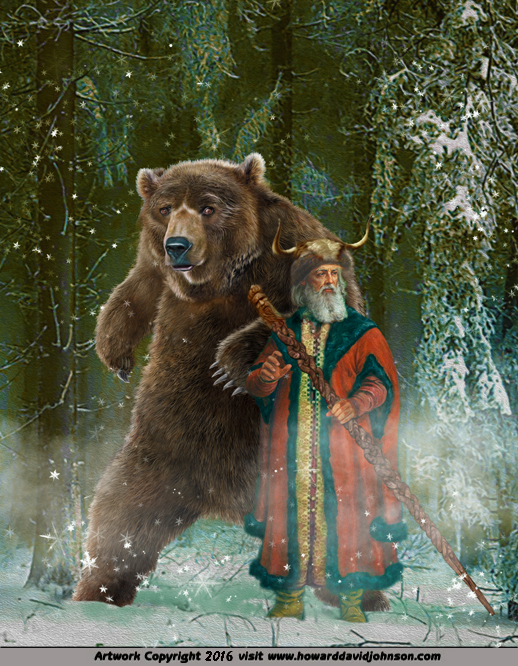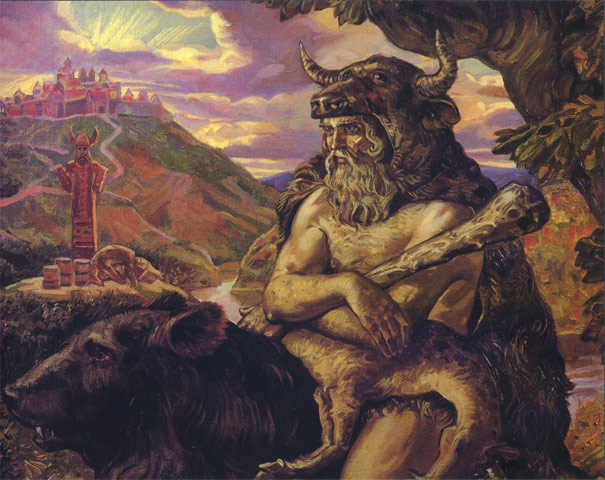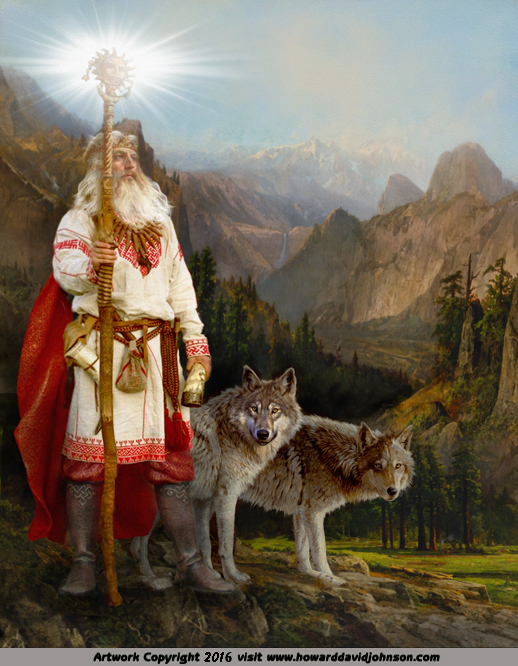How can the answer be improved?
Apr 05, 2016 · The opposite of the domovoi was the kikimora, an evil household spirit in Slavic mythology that was especially prominent in Polish and Russian stories. The kikimora was a witch or the spirit of the deceased who lived in the house and was usually seen as a source of evil.
The Goddesses Of Slavic Mythology. The goddesses of Slavic folklore are shrouded in mystery, their true nature obscured by the Christian faith which sought to eradicate all pagan worship. However, a large part of their mythology can be reconstructed from linguistics, folklore and comparative mythology.

Russian myths and folklore come from two sources: the pre-Christian Slavic paganism and the legends and tales composed after Russia became Orthodox Christian. Pagan spirits The pagan myths of the ancient Rus told about a number of gods (mostly nature deities) and many kinds of spirits and faeries. We’ll list some of them.

Unfortunately, Slavic mythology originated in the days when writing was not a norm, and because of this it has never been recorded officially by Slavs but rather by Christian Chroniclers. Lucky for us it is possible to restore some of the ancient legends thanks to oral folklore, rituals, folk beliefs and such notes made by ancient chroniclers.



Jul 11, 2010 · In Slavic mythology, a rusalka (plural: rusalki) was a female ghost, water nymph, succubus or mermaid-like demon that dwelled in a waterway. According to most traditions, the rusalki were fish-women, who lived at the bottom of rivers.
The Goddesses Of Slavic Mythology. The goddesses of Slavic folklore are shrouded in mystery, their true nature obscured by the Christian faith which sought to eradicate all pagan worship. However, a large part of their mythology can be reconstructed from linguistics, folklore and comparative mythology.


Folklore of Russia is folklore of Russians and other ethnic groups of Russia. Russian folklore takes its roots in the pagan beliefs of ancient Slavs and now is represented in the Russian fairy tales. Epic Russian bylinas are also an important part of Slavic mythology.

Deities of Slavic religion, arranged in cosmological and functional groups, are inherited through mythology and folklore. Both in the earliest Slavic religion and in modern Slavic Native Faith’s theology and cosmology, gods are arranged as a hierarchy of powers begotten by the supreme God of the universe, Rod, known as Deivos in the earliest Slavic religion.

Apr 05, 2016 · Slavic mythology has two key differences from the well-known Greek and Roman mythologies. First, many of the spirits are still part of common images and folktales among Slavic people. Secondly, the old Slavic pantheon of gods is not well documented, so scholars have attempted to recreate the information based on secondary documents.
